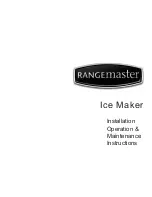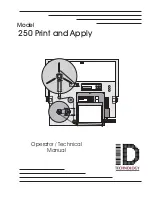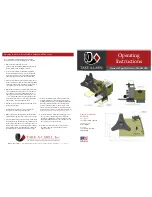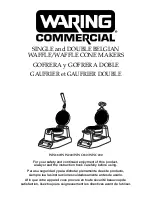
HEC-Series Service Manual
INTRODUCTION
10/24/01
1-2
Important Safety Notice.
This information is intended for use by individuals possessing
adequate backgrounds of electrical, refrigeration and mechanical experience. Any attempt to
repair major equipment may result in personal injury and property damage. The manufacturer
or seller cannot be responsible for the interpretation of this information, nor can it assume any
liability in connection with its use.
Special Precautions To Be Observed When Charging Refrigeration Systems.
Only
technically-qualified persons, experienced and knowledgeable in the handling of refrigerant
and operation of refrigeration systems, should perform the operations described in this
manual. All local, federal, and EPA regulations must be strictly adhered to when handling
refrigerants.
If a refrigeration system is being charged from refrigerant cylinders, disconnect each cylinder
when empty or when the system is fully charged. A gage should be installed in the charging
line to indicate refrigerant cylinder pressure. The cylinder may be considered empty of liquid
HCFC-22 refrigerant when the gauge pressure is 25 pounds or less, and there is no frost on
the cylinder. Close the refrigerant charging valve and cylinder valve before disconnecting the
cylinder. Loosen the union in the refrigerant charging line--carefully to avoid unnecessary and
illegal release of refrigerant into the atmosphere.
! CAUTION !
Immediately close system charging valve at commencement of defrost or thawing cycle
if refrigerant cylinder is connected. Never leave a refrigerant cylinder connected to
system except during charging operation. Failure to observe either of these precautions
can result in transferring refrigerant from the system to the refrigerant cylinder, over-
filling it, and possibly causing the cylinder to rupture because of pressure from
expansion of the liquid refrigerant brought on by an increase in temperature.
! CAUTION !
Always store cylinders containing refrigerant in a cool place. They should never be exposed
to temperatures higher than 125
°
F and should be stored in a manner to prevent abnormal
mechanical shocks.
Also, transferring refrigerant from a refrigeration system into a cylinder can be very dangerous
and is not recommended.
! CAUTION !
It is not recommended that refrigerant be transferred from a refrigeration system
directly into a cylinder. If such a transfer is made, the refrigerant cylinder must be an
approved, CLEAN cylinder--free of any contaminants or foreign materials--and must
be connected to an approved recovery mechanism with a safety shutoff sensor to assure
contents do not exceed net weight specified by cylinder manufacturer or any applicable
code requirements.
! CAUTION !
Summary of Contents for HEC-10
Page 1: ...HEC SERVICE MANUAL ...
Page 95: ...HEC Series Service Manual SERVICE OPERATIONS 10 21 01 9 13 FIGURE 9 9 Cutter Water Tank Parts ...
Page 96: ...HEC Series Service Manual SERVICE OPERATIONS 10 21 01 9 14 FIGURE 9 10 Cutter Drive Parts ...
Page 97: ...HEC Series Service Manual SERVICE OPERATIONS 10 21 01 9 15 FIGURE 9 11 Cutter Parts ...
Page 106: ...HEC Series Service Manual MODEL NUMBER STRUCTURE 10 21 01 10 1 10 Model Number Structure ...










































